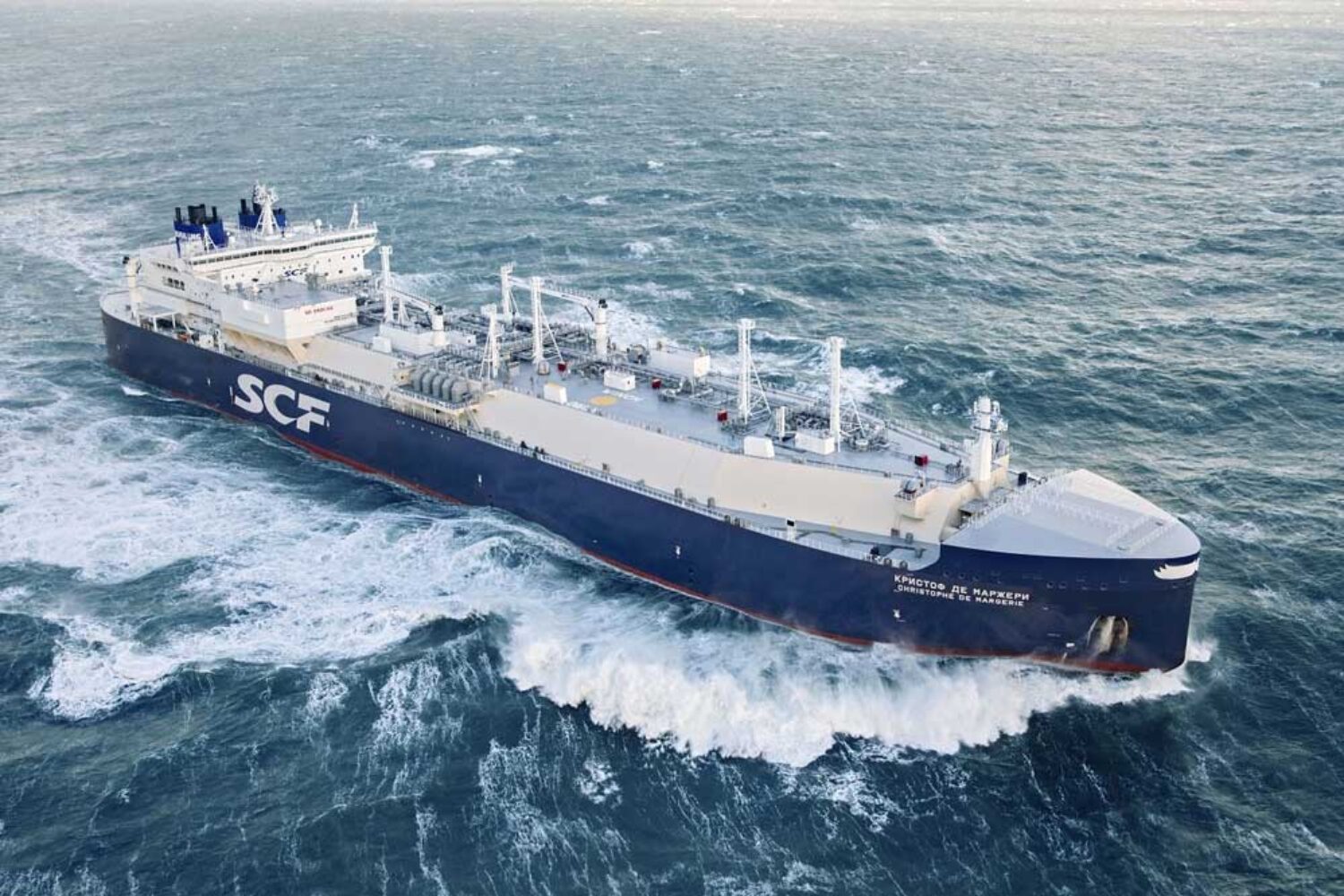The Russian shipping company Sovcomflot suffered a drastic net loss of $393 million (€361 million) in the first quarter.
The company blames this on new Western sanctions, in particular a package of measures imposed by the United States in January.
This led to further ships in the fleet being placed on the sanctions list and a previously issued operating license being revoked. This had allowed some tankers to continue sailing despite existing restrictions.
Revenue fell by almost 50% year-on-year to around € 245 million. The operating result (EBITDA) fell by 69% to just € 92 million. Sovcomflot is complaining about serious commercial and operational problems. Several ships had to be taken out of service, while others are apparently being used at high discounts in order to obtain any contracts at all.
A large part of the quarterly loss was booked as a non-cash expense in the form of depreciation. Ships were written down in the process – but it remains unclear whether these are real losses in market value or purely accounting adjustments. The valuation practice raises questions, as concrete information on the ships concerned or the valuation methods has been lacking to date. Currency losses also had a negative impact on the result, as Sovcomflot prepares its accounts in foreign currencies and the rouble appreciated against the dollar.
Sovcomflot: Between state control and corporate responsibility
The question has long since arisen as to whether Sovcomflot is still acting independently as a company at all. The shipping company plays a key role in the Russian oil trade, the proceeds of which finance a significant proportion of government spending. In this respect, it is obvious that economic losses are politically acceptable as long as the logistics chain is maintained. The role of the company is becoming increasingly blurred between economic independence and state function.
How are important customer states such as China and India reacting to the disrupted supply chains? So far without open criticism – both countries rely on covert processing via non-transparent structures, often using the so-called shadow fleet. Although the US sanctions led to disruptions in the short term, trade continues, just less visibly. A sustained decline in Russian oil exports to these regions has not yet been observed.
Growing risk of side effects
This development raises a fundamental question: Are the sanctions really achieving their goal? Critics warn that Russian activities are merely shifting to networks that are more difficult to control. At the same time, tighter supply and higher risks on the global market could drive up oil prices, which could paradoxically lead to higher revenues for Russia. Authoritarian exporting countries such as Iran or Venezuela could also emerge stronger from this development, as they are prepared to fill any gaps that arise.
A recent incident underlines the explosive nature of this: Russia allowed a fighter plane to enter NATO airspace over the Baltic Sea, apparently to intercept an oil tanker that is part of the shadow fleet. The incident shows the extent to which geopolitical tensions are merging with control over trade routes. Energy supply is increasingly becoming a strategic playing field – with economic and security risks for all involved. (rup)













